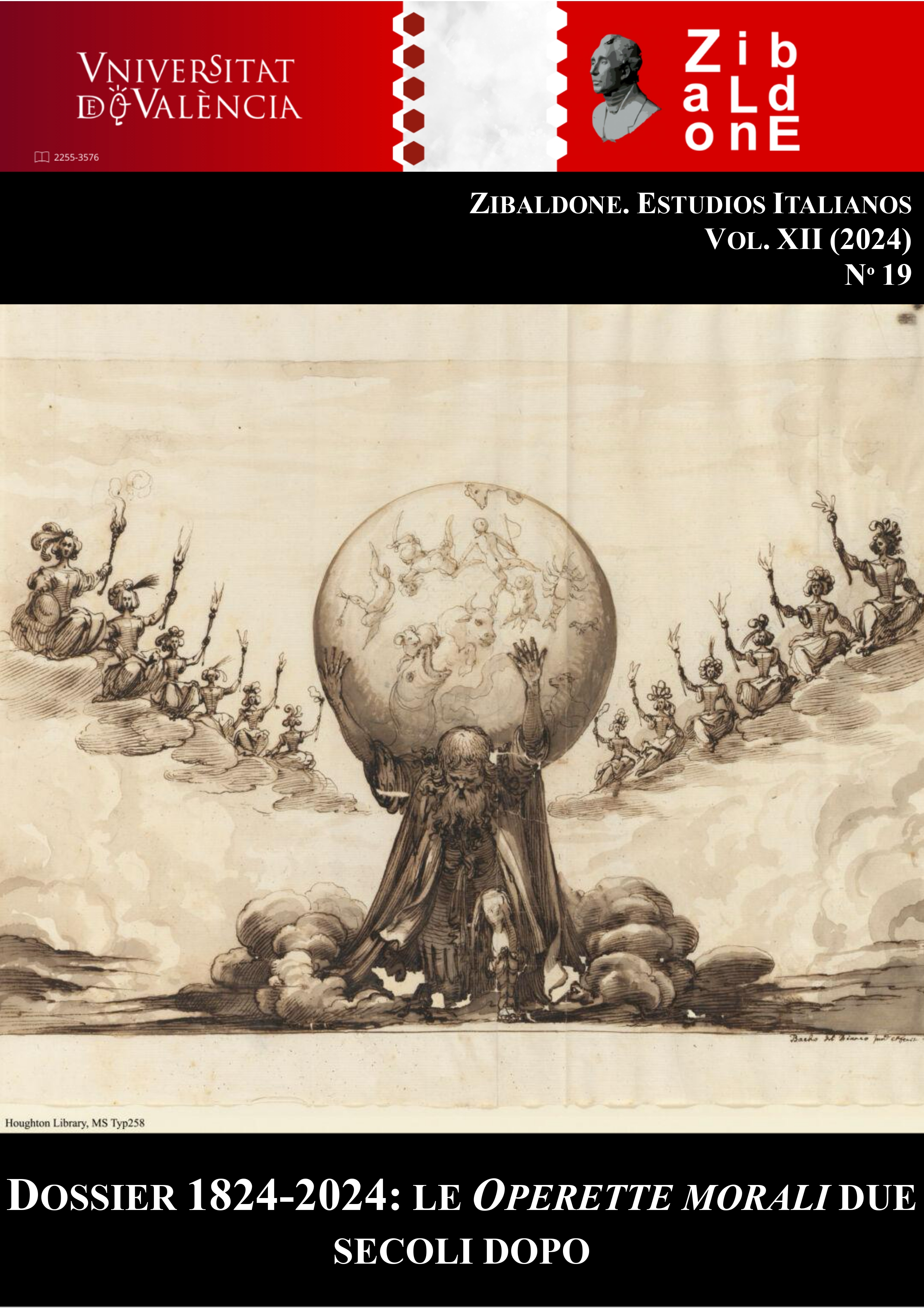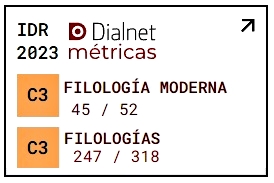La dissimulazione (del sentimento) nelle Operette morali
DOI:
https://doi.org/10.7203/zibaldone.12.29370Keywords:
Leopardi, Dissimulation, Love, Moral, Friendship Abstract
Abstract
Leopardi identifies dissimulation as a compositional, and an aesthetic principle. This is characterised as a philosophical and structural dissimulation, as well as one of mimesis. This approach involves a process of shuffling cards, avoiding conclusions, opening up possible worlds and eluding certainties and apparent logic. The Operette morali are, in fact, designed and composed under the banner of destabilisation with respect to expectation. Furthermore, the declared renunciation of dissimulation of existential unhappiness coincides in many cases with the dissimulation of sentiment, particularly love and friendship, which lends the text a surprising modernity. The work is entirely set in a disorienting, at times dystopian perspective.
 Downloads
Downloads
Downloads
Published
How to Cite
-
Abstract14
-
PDF 5
Issue
Section
License
![]()
This work is licensed under a Creative Commons Attribution 4.0 International License.
All contents of this electronic edition, except where otherwise noted, are distributed under a “Creative Commons Attribution 4.0 International License.” license (CC-by). You may read here the basic information and the legal text of the license. The indication of the license CC-by must be expressly stated in this way when necessary.
Self-archiving in repositories, personal webpages or similar, of any version other than the published by the Editor, is not allowed.






